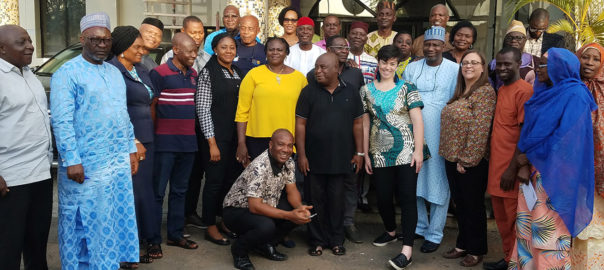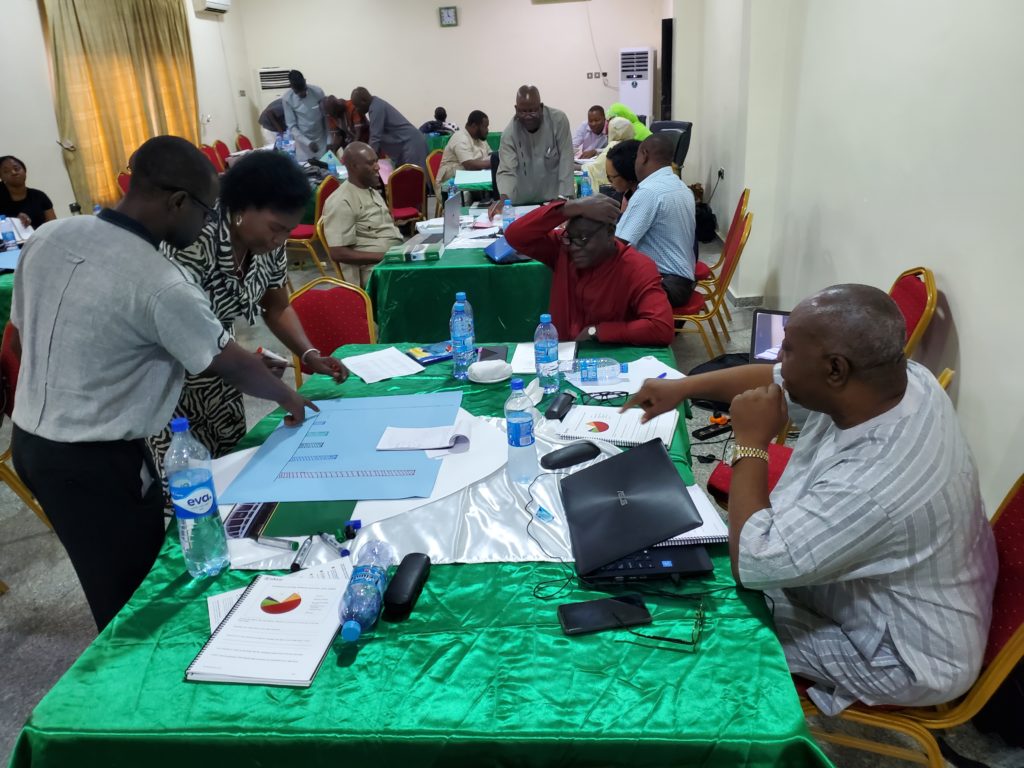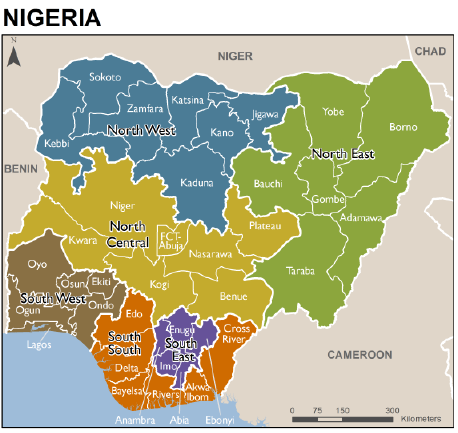Disseminating DHS Data at the Subnational Level in Nigeria

As health systems and programs are increasingly managed at subnational levels (regions, states, or counties), DHS data are frequently available at smaller geographic units. For instance, the 2018 Nigeria DHS provides estimates at the national level, by urban-rural residence, and for 6 zones and 36 states and the Federal Capital Territory (FCT). There is an increased demand for subnational dissemination activities to present DHS survey findings to local stakeholders to encourage data use in program design, evaluation, and research at the local level. To train communicators on survey dissemination to local program managers, The DHS Program developed a ‘Communicating DHS Data at the National and State Levels’ workshop.
The capacity strengthening training was piloted with the 2016 Kenya DHS, the first Kenya DHS survey to collect data at the county level. The workshop was then formalized into a five-day training, different versions of which have now been implemented in Tanzania, Malawi, Myanmar, Mali, Philippines, Uganda, and Haiti.

On November 5, 2019, more than 300 people attended the official launch of the 2018 Nigeria Demographic and Health Survey (NDHS) in Abuja. Following the national seminar, The DHS Program Dissemination team trained teams from the survey implementing agencies, the National Population Commission (NPC) and National Malaria Elimination Programme (NMEP). Participants learned about dissemination, data use, and data visualization best practices and developed data use activities and presentations with state-level data.
From November to December 2019, the NPC and NMEP teams facilitated state-level data use workshops in each of Nigeria’s 36 states and the FCT. The audience included government officials (Governors’ representatives, Deputy Governors, State Public Health Directors), state-level representatives from UNICEF and WHO, traditional leaders, academia, and others. NPC and NMEP officials trained state-level data users on how to read the tables in the 2018 NDHS final report, demonstrated STATcompiler and The DHS Program mobile app, and facilitated locally relevant discussions about using the 2018 NDHS state-level findings to inform evidence-based programs and policies.
During the Jigawa state dissemination workshop, Governor Mohammed Badaru Abubakar of Jigawa state called for action, “this report can also be used for planning purposes in our ministries, departments, boards and parastatals as well as other relevant agencies in Jigawa state.” The Federal Commissioner for NPC in Anambra state, where 53% of ever-married women age 15-49 have experienced physical, sexual, or emotional spousal violence, said that the 2018 NDHS would be used for “proper planning for sustainable development.”

Thanks to the hard work of the NPC and NMEP dissemination teams, more than 5,000 people attended dissemination workshops in their states and learned the 2018 NDHS findings first-hand.
See here for the latest update on The DHS Program fieldwork activities during COVID-19.
Featured image: Dissemination training participants from the National Population Commission (NPC) and National Malaria Elimination Programme (NMEP). © ICF
